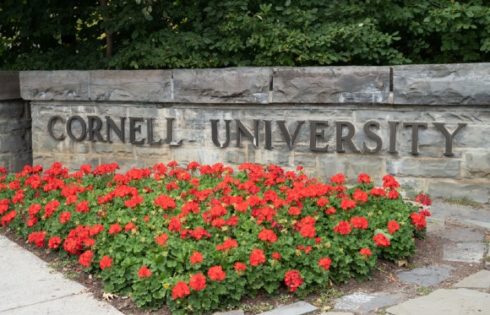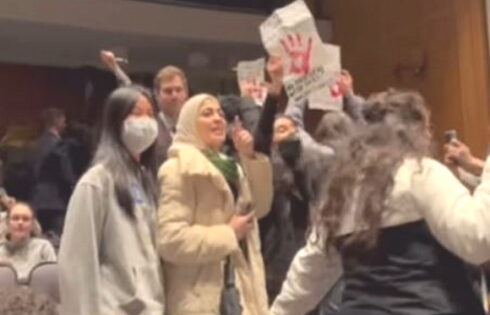
This week I saw a preview screening of a documentary about Syrian citizen journalists who chronicled the rise of ISIS before anyone in the West gave a damn about the propaganda-fueled jihadist group.
The heroes of City of Ghosts, which releases commercially next month, are ordinary “internal” people whose lives are threatened – not “words are violence” threatened, but mortally threatened – every time they secretly record the daily atrocities in Raqqa, the ISIS capital.
They feed it out to their still-endangered “external” compatriots who manage the news operation, known as Raqqa is Being Slaughtered Silently, from abroad.
The first leader of the group, Naji Jerf, who put these young journalists through a crash course in war reporting, was tracked down by ISIS in Turkey and executed during the documentary’s filming. That’s how dangerous unfiltered information is to propagandists.
He looks like a college journalism adviser, I thought as I watched the screening, organized by the Reporters Committee for Freedom of the Press. (Two of the citizen journalists made a surprise visit. Our questions for them kind of sucked because we were stunned they made it here.)
Naji Jerf was basically working with people – many of whom appear to be college age – who had non-journalism livelihoods, but felt compelled to shine a light on their besieged city when no one else would.
For those of us safely reporting on absurd things in America, where the main victim is sanity and common sense, our work feels puny compared to the daily life-and-death struggle of Raqqa is Being Slaughtered Silently.
But there are faint shadows of the Syrian citizen journalists’ struggle in many towns in America, where youngsters operate under the constant threat of punishment and censorship for reporting on their communities.
The Washington Post profiles the important work of the Student Press Law Center, which we occasionally feature and consult for College Fix stories, and its outgoing executive director, Frank LoMonte, who is headed to the University of Florida to do journalism law.
I feel a certain kinship to SPLC because we’re both tiny shoestring-budget nonprofits working with journalism newbies who are vulnerable to pressure and intimidation from administrators, especially when students are covering their own schools.
As Post media columnist Margaret Sullivan notes, “the problems cut across ideology and political lines” when SPLC swoops in to defend student journalists:
LoMonte helped a reporter at the student newspaper at New Jersey’s Kean University as she tried to pry loose a surveillance video that the university’s police department was wrongly withholding. …
At an Omaha high school, the student newspaper wanted to publish a column suggesting that teachers keep their politics out of the classroom. (It observed that some of them were trash-talking Trump, using words such as “Nazi” and “Hitler.”)
The school administration found the column unacceptable. Then, when students tried to write about the censorship, that article was killed, too. With SPLC’s intervention, both pieces were published — and won a state high school journalism award. …
“I’ve gotten people out of jail, I’ve gotten cameras back from police — this is an urgent-level service,” said LoMonte …
If you want to grow independent journalists, defend them young. No one does more than @SPLC. @Sulliview explains.https://t.co/xdSOJ5fJfg
— Barton Gellman (@bartongellman) June 19, 2017
SPLC is also leading the charge at the state level for statutory protections for student journalists, and it sends out 200-odd “lawyer-volunteers” who run journalism workshops for students.
LoMonte makes a great argument when he faces off against administrators who want to suppress reporting:
That schools would be acting in their own self-interest to let students publish because, in the social-media era, they’ll find a way to get their message out in some other (perhaps less accurate) form, anyway.
It’s a little easier for High Schoolers Being Censored Silently to circumvent the powers-that-be than for the brave journalists of Raqqa is Being Slaughtered Silently, thankfully.
Like The College Fix on Facebook / Follow us on Twitter
IMAGE: Shutterstock







Please join the conversation about our stories on Facebook, Twitter, Instagram, Reddit, MeWe, Rumble, Gab, Minds and Gettr.